James Cohan
Bridging Kolmogorov Complexity and Deep Learning: Asymptotically Optimal Description Length Objectives for Transformers
Sep 26, 2025Abstract:The Minimum Description Length (MDL) principle offers a formal framework for applying Occam's razor in machine learning. However, its application to neural networks such as Transformers is challenging due to the lack of a principled, universal measure for model complexity. This paper introduces the theoretical notion of asymptotically optimal description length objectives, grounded in the theory of Kolmogorov complexity. We establish that a minimizer of such an objective achieves optimal compression, for any dataset, up to an additive constant, in the limit as model resource bounds increase. We prove that asymptotically optimal objectives exist for Transformers, building on a new demonstration of their computational universality. We further show that such objectives can be tractable and differentiable by constructing and analyzing a variational objective based on an adaptive Gaussian mixture prior. Our empirical analysis shows that this variational objective selects for a low-complexity solution with strong generalization on an algorithmic task, but standard optimizers fail to find such solutions from a random initialization, highlighting key optimization challenges. More broadly, by providing a theoretical framework for identifying description length objectives with strong asymptotic guarantees, we outline a potential path towards training neural networks that achieve greater compression and generalization.
Evaluating Gemini in an arena for learning
May 30, 2025
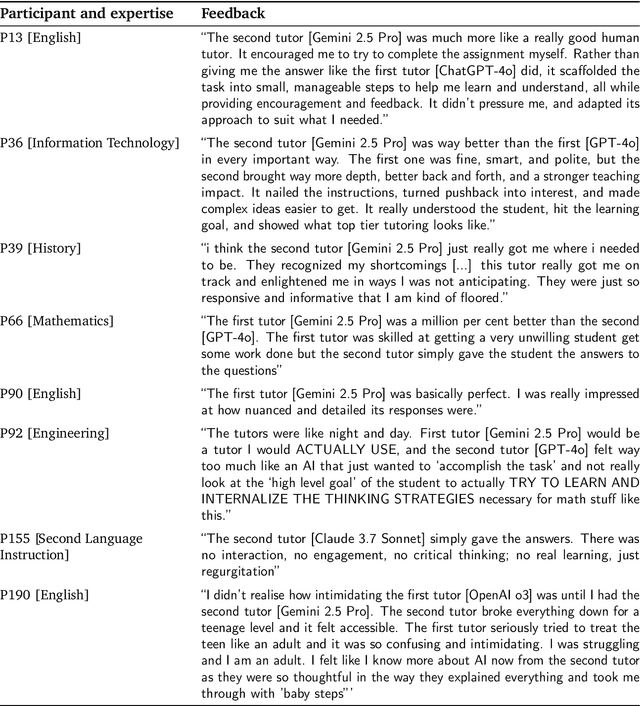

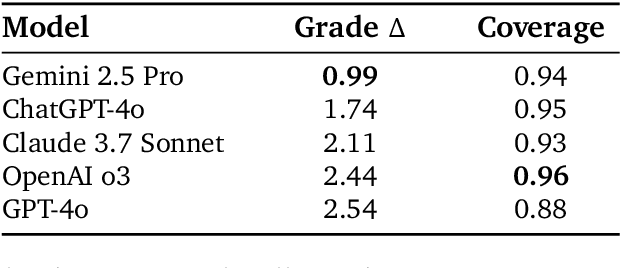
Abstract:Artificial intelligence (AI) is poised to transform education, but the research community lacks a robust, general benchmark to evaluate AI models for learning. To assess state-of-the-art support for educational use cases, we ran an "arena for learning" where educators and pedagogy experts conduct blind, head-to-head, multi-turn comparisons of leading AI models. In particular, $N = 189$ educators drew from their experience to role-play realistic learning use cases, interacting with two models sequentially, after which $N = 206$ experts judged which model better supported the user's learning goals. The arena evaluated a slate of state-of-the-art models: Gemini 2.5 Pro, Claude 3.7 Sonnet, GPT-4o, and OpenAI o3. Excluding ties, experts preferred Gemini 2.5 Pro in 73.2% of these match-ups -- ranking it first overall in the arena. Gemini 2.5 Pro also demonstrated markedly higher performance across key principles of good pedagogy. Altogether, these results position Gemini 2.5 Pro as a leading model for learning.
LearnLM: Improving Gemini for Learning
Dec 21, 2024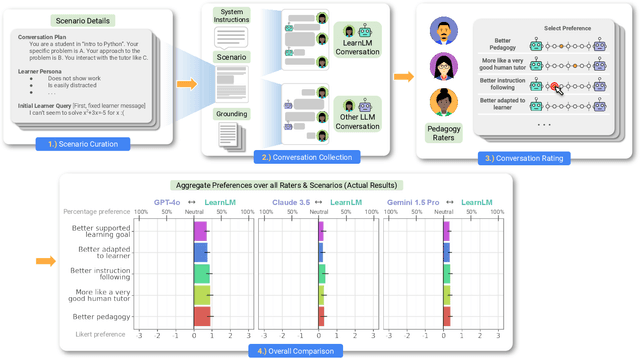
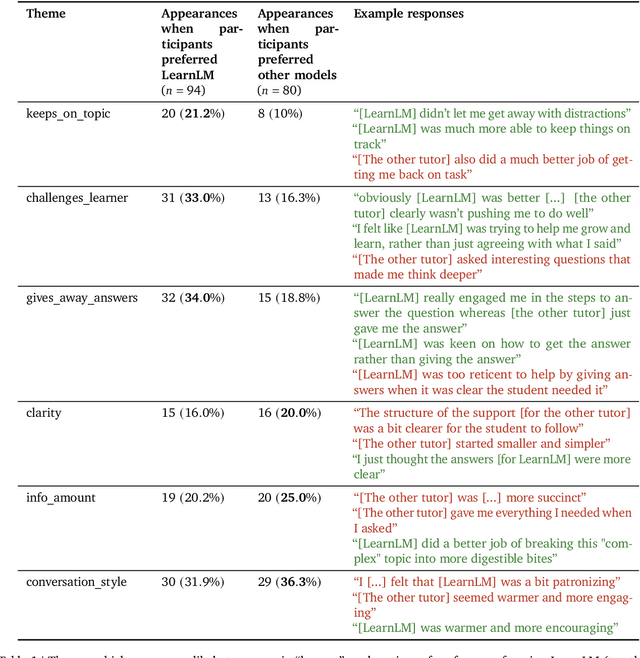
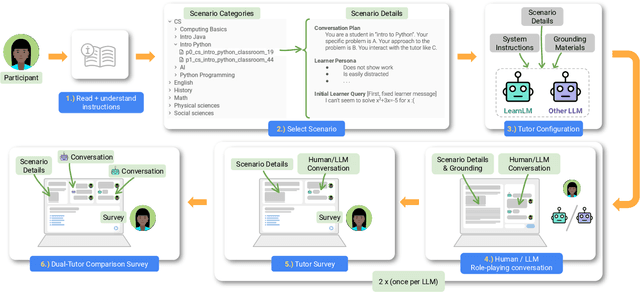
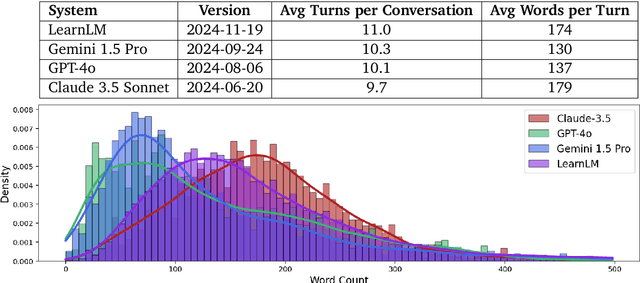
Abstract:Today's generative AI systems are tuned to present information by default rather than engage users in service of learning as a human tutor would. To address the wide range of potential education use cases for these systems, we reframe the challenge of injecting pedagogical behavior as one of \textit{pedagogical instruction following}, where training and evaluation examples include system-level instructions describing the specific pedagogy attributes present or desired in subsequent model turns. This framing avoids committing our models to any particular definition of pedagogy, and instead allows teachers or developers to specify desired model behavior. It also clears a path to improving Gemini models for learning -- by enabling the addition of our pedagogical data to post-training mixtures -- alongside their rapidly expanding set of capabilities. Both represent important changes from our initial tech report. We show how training with pedagogical instruction following produces a LearnLM model (available on Google AI Studio) that is preferred substantially by expert raters across a diverse set of learning scenarios, with average preference strengths of 31\% over GPT-4o, 11\% over Claude 3.5, and 13\% over the Gemini 1.5 Pro model LearnLM was based on.
ALTA: Compiler-Based Analysis of Transformers
Oct 23, 2024
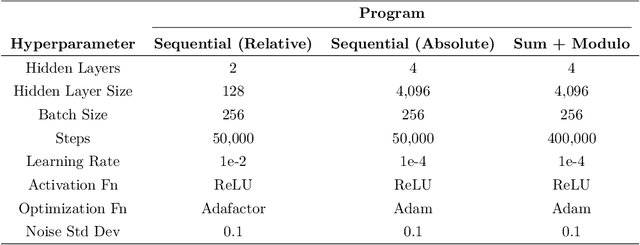
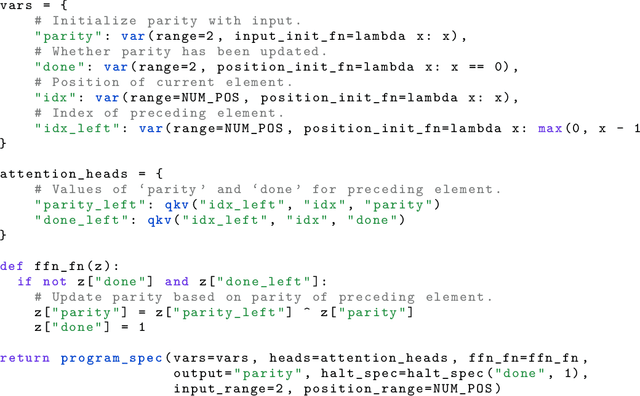
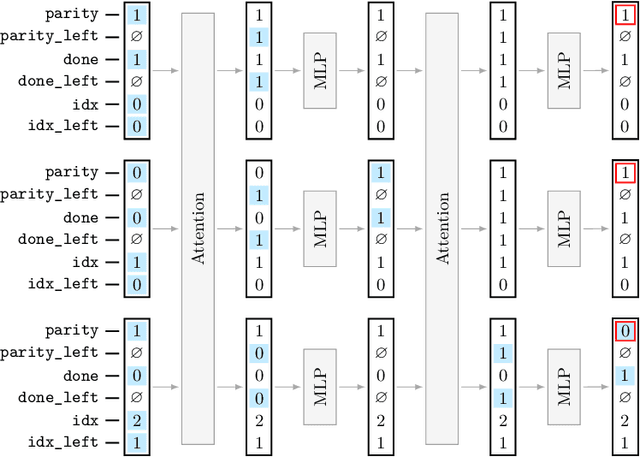
Abstract:We propose a new programming language called ALTA and a compiler that can map ALTA programs to Transformer weights. ALTA is inspired by RASP, a language proposed by Weiss et al. (2021), and Tracr (Lindner et al., 2023), a compiler from RASP programs to Transformer weights. ALTA complements and extends this prior work, offering the ability to express loops and to compile programs to Universal Transformers, among other advantages. ALTA allows us to constructively show how Transformers can represent length-invariant algorithms for computing parity and addition, as well as a solution to the SCAN benchmark of compositional generalization tasks, without requiring intermediate scratchpad decoding steps. We also propose tools to analyze cases where the expressibility of an algorithm is established, but end-to-end training on a given training set fails to induce behavior consistent with the desired algorithm. To this end, we explore training from ALTA execution traces as a more fine-grained supervision signal. This enables additional experiments and theoretical analyses relating the learnability of various algorithms to data availability and modeling decisions, such as positional encodings. We make the ALTA framework -- language specification, symbolic interpreter, and weight compiler -- available to the community to enable further applications and insights.
From Pixels to UI Actions: Learning to Follow Instructions via Graphical User Interfaces
May 31, 2023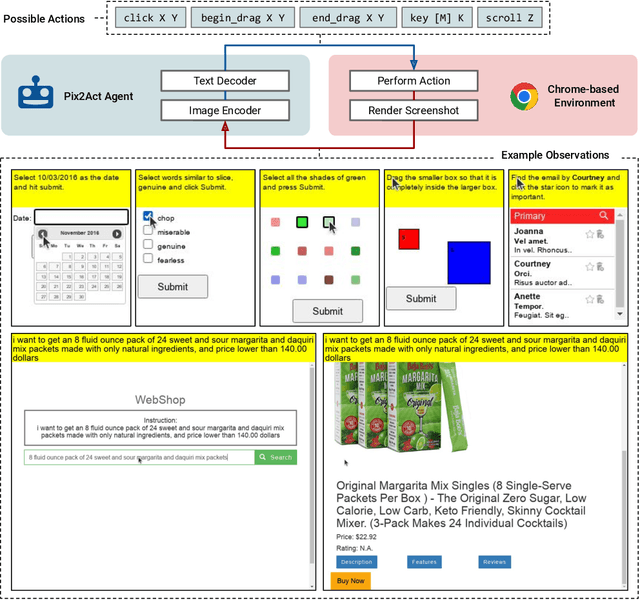
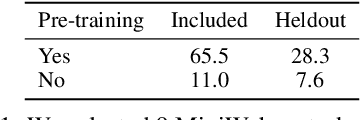
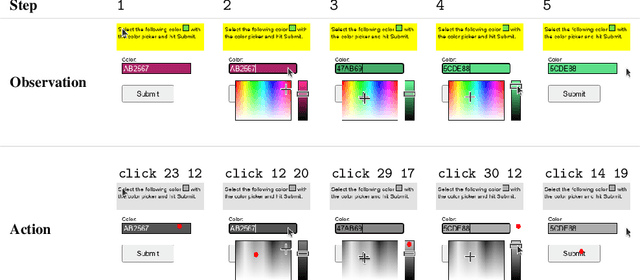
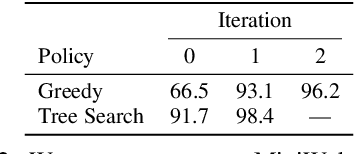
Abstract:Much of the previous work towards digital agents for graphical user interfaces (GUIs) has relied on text-based representations (derived from HTML or other structured data sources), which are not always readily available. These input representations have been often coupled with custom, task-specific action spaces. This paper focuses on creating agents that interact with the digital world using the same conceptual interface that humans commonly use -- via pixel-based screenshots and a generic action space corresponding to keyboard and mouse actions. Building upon recent progress in pixel-based pretraining, we show, for the first time, that it is possible for such agents to outperform human crowdworkers on the MiniWob++ benchmark of GUI-based instruction following tasks.
 Add to Chrome
Add to Chrome Add to Firefox
Add to Firefox Add to Edge
Add to Edge